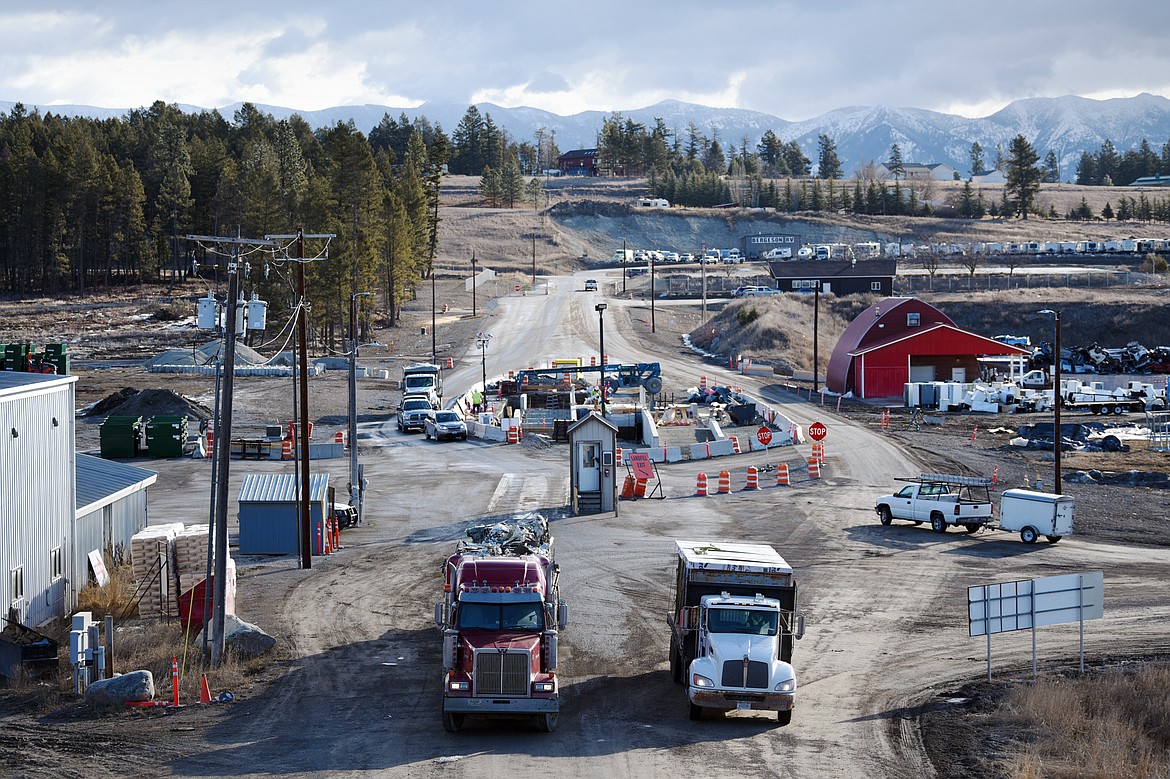Kalispell moving away from composting biosolids
Kalispell is moving away from composting its biosolids owing to public concerns surrounding forever chemicals and the potential closure of its vendor's composting facility.
At its Dec. 9 meeting, Kalispell City Council weighed disposal options for the city’s biosolids, drawing on a report from engineering consulting firm AE2S. The municipality sends 70% of its biosolids to Glacier Gold Composting and the rest to Flathead County Landfill.
Glacier Gold has tentative plans to close its bagging and distribution facility in Olney, according to city documents. The city’s agreement with the firm expires in March 2025, but Public Works Director Susie Turner said that she is working on extending it.
Although nothing was formally decided Monday, Council appeared in agreement to turn to the Flathead County Landfill to take its supply and invest in dewatering equipment to meet the landfill’s standards.
The new and upgraded equipment has a projected cost of $6.8 million, according to the AE2S report.
Biosolids, also known as sewage sludge, are a product of the wastewater treatment process. The solids are treated to create a nutrient-rich product that can be used in composts and be a natural fertilizer.
While composted biosolids can be a sustainable and nutrient-rich option for farms, Environmental Protection Agency tests have found hundreds of pollutants in biosolids, including PFAS, or per- and polyfluoroalkyl substances.
The chemicals are widely used and long lasting, often employed in water-repelling products, such as non-stick cookware or waterproof jackets.
“If you asked me two years ago where I would be on this I definitely would have been on the composting side,” Councilor Ryan Hunter said. “But the whole PFAS question comes in and totally changes that equation.”
While the EPA has rolled out regulations on PFAS in drinking water, the same has not yet been done to biosolids. Scott Bueker, project manager with AE2S, said the federal agency will be coming out with a risk assessment by the year's end, but expects that regulations will be up to the states.
Bueker said PFAS is present in Kalispell’s biosolids, “but it is relatively low compared to utilities across the United States that have tested.”
States that have started to initiate their own regulations are calling anything below 20 to 30 parts per billion as not an issue, Bueker said. The AE2S report found that Kalispell’s treatment center contains two parts per billion of PFOS/PFOA.
The AE2S report provided two options that would eliminate PFAS in the waste, but the Bueker said the technology is new and comes with a price tag.
Reporter Jack Underhill can be reached at 758-4407 and junderhill@dailyinterlake.com.

